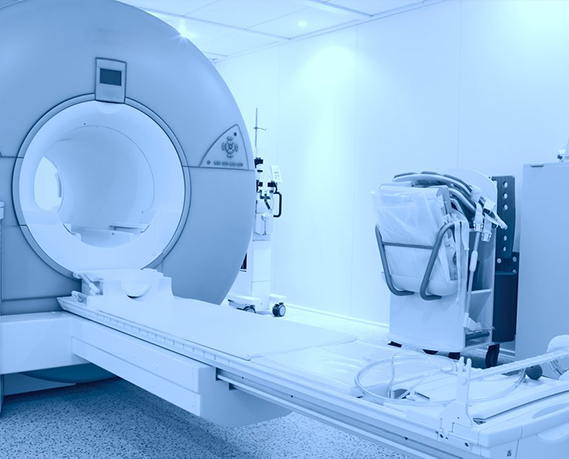
Against Cancer, We Are Stronger Together!
BOOK AN APPOINTMENT

Overview of Department
Gleneagles Global Health City at Chennai provides you with the best diagnosis, treatment and consultation for cancer in India. Our panel of medical and surgical oncologists are widely renowned in their respective fields and come with a wide range of experience and expertise. Specialists in various forms of cancer treatments, our doctors deliver comprehensive treatment and care.
Consult us at Gleneagles Global Health City, Chennai for getting the best treatment for cancer through the finest and best cancer specialists in India.
Conditions We Treat
-
 BREAST CANCER
BREAST CANCER
-
 ORAL CANCER
ORAL CANCER
-
 THYROID TUMOR
THYROID TUMOR
-
 LUNG CANCER
LUNG CANCER
-
 ESOPHAGEAL CANCER
ESOPHAGEAL CANCER
-
 STOMACH CANCER
STOMACH CANCER
-
 COLORECTAL CANCER
COLORECTAL CANCER
-
 PANCREATIC CANCER
PANCREATIC CANCER
-
 CERVICAL CANCER
CERVICAL CANCER

BREAST CANCER
Breast Cancer is one of the most prevalent and common forms of Cancers. This condition largely effects women only, while in a very few rare cases it also affects certain men. Breast Cancer develops in the cells of the breast, wherein certain cells in the breast begin to grow rapidly and abnormally. This results in the accumulation of lumps or a mass of tissue.

ORAL CANCER
Oral Cancer refers to the Cancers that can originates in the oral cavity. The cancer can originate in the lips, gums, tongue, cheeks, inner & upper parts of the mouth. The incidence of oral cancer is high in people consuming tobacco products. Oral cancers primarily affect the flat, squamous cells in the lips and the inside of the mouth and therefore most oral cancers are squamous cell carcinomas.

THYROID TUMOR
Tumors of the thyroid or thyroid cancer occurs in the thyroid gland, located at the base of your neck. The gland produces various hormones affecting heart rate, blood pressure, body temperature and weight, amongst other functions. The thyroid tumors are cells that undergo mutations, leading to the cells growing and multiplying more rapidly than normal healthy cells.

LUNG CANCER
Lung cancer is a type of cancer that originates in the lungs and is a prevalent form of cancer worldwide. Increased incidence of smoking and rising levels of air pollution have brought a lot many people into the high-risk category of lung cancer.

ESOPHAGEAL CANCER
The long tubular structure running from the back of the oral cavity to the stomach is the esophagus, and cancer originating in the lining of the esophagus is known as esophageal cancer. The esophagus carries food from the mouth down into the stomach, and thus what we eat is largely responsible for the development of esophageal cancer.

STOMACH CANCER
Stomach Cancer refers to the Cancer that can originates in the cells of the stomach. The stomach is the organ that is responsible for the primary digestion of the food and lies just below the rib cage in the upper abdominal cavity. Stomach Cancers can also be referred to as gastric cancers. Cancer cells often originate within the inner lines of the stomach in the mucous-producing cells.

COLORECTAL CANCER
Colorectal Cancer is a type of cancer that originates in the cells of the large intestine and the rectum. Typically, the cancer begins as benign tumors, also known as adenomatous polyps, and over a period of time some of the polyps tend to become cancerous. The rectal cancer also develops in the large intestine, in the extreme lower part of the colon. Together these cancers are also termed as colorectal cancers.

PANCREATIC CANCER
Pancreatic Cancer refers to the Cancer that can originates in the pancreas. The pancreas is the organ that is responsible for secreting enzymes that aid the digestive process; it helps regulate the body metabolism. The best case for treatment of pancreatic cancer is to detect the disease early. The disease spreads very quickly and thereby don't allow any time for successful treatment, if it is not detected early.

CERVICAL CANCER
Cervical Cancer is a type of Cancer that originates in the cells of the cervix. The cervix is the lower part of the uterus connecting the vagina. The cancer can develop from exposure to the human papillomavirus (HPV) which is a sexually transmitted infection. Regular screening and vaccinations can help prevent the development of this cancer.
PROCEDURES
-
 ONCOPLASTY
ONCOPLASTY
-
 RADICAL MASTECTOMY
RADICAL MASTECTOMY
-
 THYROIDECTOMY
THYROIDECTOMY
-
 VATS LOBECTOMY
VATS LOBECTOMY
-
 LAR SURGERY
LAR SURGERY
-
 APR SURGERY
APR SURGERY
-
 PELVIC EXENTERATION
PELVIC EXENTERATION
-
 WHIPPLE SURGERY
WHIPPLE SURGERY
-
 LAPAROSCOPIC HYSTERECTOMY
LAPAROSCOPIC HYSTERECTOMY
ONCOPLASTY
Oncoplasty is a surgical procedure for the treatment of breast cancer wherein the surgeons remove the cancerous tumor and then reshape the breast to realign the he nipple and areola. This restores the natural appearance of the breast shape. The second breast is reshaped likewise to maintain symmetry and aesthetic balance. The surgery is recommended for patients who need to undergo both lumpectomy and also require either a breast reduction or breast lift procedure.
RADICAL MASTECTOMY
A radical mastectomy is a surgical procedure, commonly employed as a treatment for breast cancer, wherein the surgical oncologist removes the entire breast and underlying tissues. As part of the procedure, the lymph nodes underneath. The procedure is a widely accepted and performed procedure as part of the multi-pronged breast cancer treatment.
THYROIDECTOMY
Thyroidectomy is either a partial or complete removal of the thyroid gland and is employed for the treatment of cancers related to the thyroid. A butterfly-shaped gland, located at the base of the neck - thyroid - produces various hormones, that are necessary for the metabolism in the body. Thyroidectomy not only treats cancers of the thyroid gland but also other thyroid-related disorders such as - hyperthyroidism and non-cancerous enlargement of the thyroid.
VATS LOBECTOMY
Lobectomy is a surgical procedure to remove one of the lung's five lobes. And VATS lobectomy is the video-assisted thoracoscopic variant, which is performed using a minimally invasive method. For a VATS lobectomy, the surgeon will insert a tiny camera - known as a Video-assisted thoracoscopic surgery, as well as the surgical instruments via small incisions in the chest region.
LAR SURGERY
A low anterior resection is a surgical procedure for the treatment of cancers of the rectum. The surgery removes the part of the rectum affected by the cancer. The surgeon will then reconnect the remaining part of the rectum to the colon and thereby facilitate the regular and normal bowel movement. The procedure may be performed as an open resection procedure with a long incision made in the abdominal wall, or it can be performed as a minimally invasive procedure using multiple small incisions.
APR SURGERY
Abdominoperineal resection is a surgical procedure for the treatment of cancers in the lower part of the rectum or anus, in close proximity of the sphincter muscles. As part of this surgical procedure, the surgeon will remove the anus, rectum, and sigmoid colon. The procedure can be performed as an open procedure or a minimally invasive procedure via the laparoscopic method. Following the surgery, the surgeon will create a colostomy for the excretion of waste from the body.
PELVIC EXENTERATION
Pelvic exenteration is a surgical procedure for the treatment of rectal cancer, should the cancer be growing into the nearby organs. This is a complex and major surgical procedure and involves the removal of the rectum, and the other organs such as bladder, prostate (in men), or uterus (in women) - that have been affected by the cancer.
WHIPPLE SURGERY
The whipple surgery, also known as the pancreaticoduodenectomy, is a surgical procedure for the removal of the head of the pancreases as well as the small intestine or the duodenum, the gallbladder and the bile duct. These are organs commonly associated with the digestion of food and the procedure to remove them is due to a malignant or non-malignant tumor of the pancreas, intestine and bile duct.
LAPAROSCOPIC HYSTERECTOMY
A hysterectomy is the removal of the uterus for a wide range of reasons, including due to the presence of malignant and non-malignant tumors. The procedure has been fairly widely performed and is a major surgical procedure. However, with the advent of new technologies and laparoscopic methods, it is now possible to remove the uterus via minimally invasive surgical procedures that result in less trauma, reduced complications and faster recovery.
How We Treat
 Gleneagles Global Health City at Chennai provides advanced care and consultation different types of cancer. A dedicated team of nursing & paramedics’ team work round-the-clock to offer clinical support required and deliver an exceptional patient experience. Our team of surgical oncologists, radiation oncologists are a part of an integrated team and are ably supported by a team of specialized nurses, nutritionists and counsellors. This highly trained team is committed to putting patients first and delivering compassionate, high-quality care.
Gleneagles Global Health City at Chennai provides advanced care and consultation different types of cancer. A dedicated team of nursing & paramedics’ team work round-the-clock to offer clinical support required and deliver an exceptional patient experience. Our team of surgical oncologists, radiation oncologists are a part of an integrated team and are ably supported by a team of specialized nurses, nutritionists and counsellors. This highly trained team is committed to putting patients first and delivering compassionate, high-quality care.
The surgical treatments are administered by dedicated surgeons with specialized training and years of experience in the field. Cancer care for patients extends beyond surgery, including post-surgical care and rehabilitation to minimize patient discomfort and encourage recovery.
 Gleneagles Global Health City at Chennai is committed to delivering an exceptional patient experience. From the moment you step into our premises, we strive to deliver nothing but the very best. From consultation, diagnosis, treatment and post-treatment care – our dedicated staff and tireless patient-experience teams ensure that you are well-looked after and giving utmost attention.
Gleneagles Global Health City at Chennai is committed to delivering an exceptional patient experience. From the moment you step into our premises, we strive to deliver nothing but the very best. From consultation, diagnosis, treatment and post-treatment care – our dedicated staff and tireless patient-experience teams ensure that you are well-looked after and giving utmost attention.
Visitors, family and friends also form a vital part of the treatment process and we understand the need for your loved ones to visit you at the hospital. Visitor-friendly amenities, and a host of features make sure that your visit to the hospital is pleasant & hassle-free.
 Gleneagles Global Health City at Chennai provides state-of-the-art infrastructure and facilities to deliver the most advanced cancer care. High end diagnostics systems coupled with advanced surgical facilities, post-surgical wards and round-the-clock emergency services make us one of the best hospitals for the treatment of cancer in India. We maintain the highest standards of diagnosis by employing technologically advanced diagnostic services and automated processes which improves the speed and accuracy of of results – this makes treatment more affordable and less stressful.
Gleneagles Global Health City at Chennai provides state-of-the-art infrastructure and facilities to deliver the most advanced cancer care. High end diagnostics systems coupled with advanced surgical facilities, post-surgical wards and round-the-clock emergency services make us one of the best hospitals for the treatment of cancer in India. We maintain the highest standards of diagnosis by employing technologically advanced diagnostic services and automated processes which improves the speed and accuracy of of results – this makes treatment more affordable and less stressful.
Our diagnostic labs are equipped with top-of-the-line equipment including the latest scanning machines and high resolution DBT (Digital Breast Tomosynthesis), Trubeam technology, etc. Our highly skilled clinicians play an essential role in error reduction by procuring high-quality specimens, providing quick follow-up on test results and advocating second opinions on the pathology diagnosis when required. Our diagnostic services include pathology, biopsy, radiology, nuclear medicine, endoscopy and colposcopy.
How We Treat
 Gleneagles Global Health City at Chennai provides advanced care and consultation different types of cancer.… A dedicated team of nursing & paramedics’ team work round-the-clock to offer clinical support required and deliver an exceptional patient experience. Our team of surgical oncologists, radiation oncologists are a part of an integrated team and are ably supported by a team of specialized nurses, nutritionists and counsellors. This highly trained team is committed to putting patients first and delivering compassionate, high-quality care. The surgical treatments are administered by dedicated surgeons with specialized training and years of experience in the field. Cancer care for patients extends beyond surgery, including post-surgical care and rehabilitation to minimize patient discomfort and encourage recovery.
Gleneagles Global Health City at Chennai provides advanced care and consultation different types of cancer.… A dedicated team of nursing & paramedics’ team work round-the-clock to offer clinical support required and deliver an exceptional patient experience. Our team of surgical oncologists, radiation oncologists are a part of an integrated team and are ably supported by a team of specialized nurses, nutritionists and counsellors. This highly trained team is committed to putting patients first and delivering compassionate, high-quality care. The surgical treatments are administered by dedicated surgeons with specialized training and years of experience in the field. Cancer care for patients extends beyond surgery, including post-surgical care and rehabilitation to minimize patient discomfort and encourage recovery.
 Gleneagles Global Health City at Chennai is committed to delivering an exceptional patient experience.… From the moment you step into our premises, we strive to deliver nothing but the very best. From consultation, diagnosis, treatment and post-treatment care – our dedicated staff and tireless patient-experience teams ensure that you are well-looked after and giving utmost attention. Visitors, family and friends also form a vital part of the treatment process and we understand the need for your loved ones to visit you at the hospital. Visitor-friendly amenities, and a host of features make sure that your visit to the hospital is pleasant & hassle-free.
Gleneagles Global Health City at Chennai is committed to delivering an exceptional patient experience.… From the moment you step into our premises, we strive to deliver nothing but the very best. From consultation, diagnosis, treatment and post-treatment care – our dedicated staff and tireless patient-experience teams ensure that you are well-looked after and giving utmost attention. Visitors, family and friends also form a vital part of the treatment process and we understand the need for your loved ones to visit you at the hospital. Visitor-friendly amenities, and a host of features make sure that your visit to the hospital is pleasant & hassle-free.
 Gleneagles Global Health City at Chennai provides state-of-the-art infrastructure and facilities to deliver the most advanced cancer care.… High end diagnostics systems coupled with advanced surgical facilities, post-surgical wards and round-the-clock emergency services make us one of the best hospitals for the treatment of cancer in India. We maintain the highest standards of diagnosis by employing technologically advanced diagnostic services and automated processes which improves the speed and accuracy of of results – this makes treatment more affordable and less stressful. Our diagnostic labs are equipped with top-of-the-line equipment including the latest scanning machines and high resolution DBT (Digital Breast Tomosynthesis), Trubeam technology, etc. Our highly skilled clinicians play an essential role in error reduction by procuring high-quality specimens, providing quick follow-up on test results and advocating second opinions on the pathology diagnosis when required. Our diagnostic services include pathology, biopsy, radiology, nuclear medicine, endoscopy and colposcopy.
Gleneagles Global Health City at Chennai provides state-of-the-art infrastructure and facilities to deliver the most advanced cancer care.… High end diagnostics systems coupled with advanced surgical facilities, post-surgical wards and round-the-clock emergency services make us one of the best hospitals for the treatment of cancer in India. We maintain the highest standards of diagnosis by employing technologically advanced diagnostic services and automated processes which improves the speed and accuracy of of results – this makes treatment more affordable and less stressful. Our diagnostic labs are equipped with top-of-the-line equipment including the latest scanning machines and high resolution DBT (Digital Breast Tomosynthesis), Trubeam technology, etc. Our highly skilled clinicians play an essential role in error reduction by procuring high-quality specimens, providing quick follow-up on test results and advocating second opinions on the pathology diagnosis when required. Our diagnostic services include pathology, biopsy, radiology, nuclear medicine, endoscopy and colposcopy.
Real Stories of Real Patients
Our Team of Specialized Doctors

Dr M.P. Ram Prabu
MBBS, MD (Gen Medicine), DM (Medical Oncology)

Dr Ponni Sivaprakasam
MBBS, MRCPCH (London)

Dr Deepa Chegu
MBBS, DMRD

Dr Rajeswari S
MBBS, DNB, OG

Dr Nithiin BalachandarMBBS, DNB (Radiation Oncology)
10 Years of Experience Consultant Radiation Oncologist
Dr Rishan.T.SMBBS, MD (Radiation Oncology), Essentials in palliative care
Consultant Radiation Oncologist
Locate us
Gleneagles Global Health City
439, Embassy Residency Rd, Cheran Nagar,Perumbakkam – Sholinganallur, Chennai, Tamil Nadu 600100
Dr S. Rajasundaram
25 Years of Experience Director – Institute of OncologyMS(Gen. Sur), DNB, MCh (Surgical Oncology), FAIS, FAMS